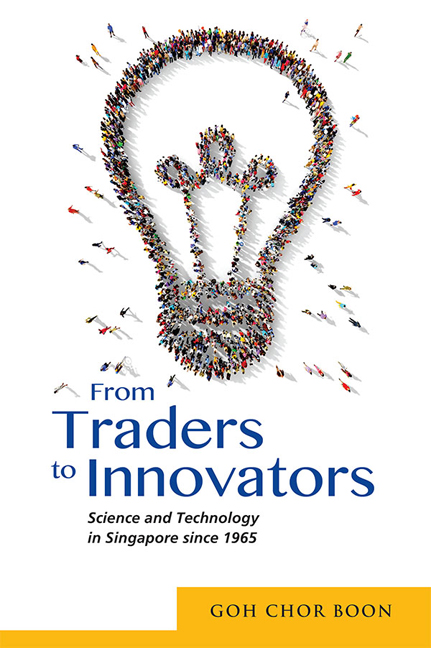Book contents
- Frontmatter
- Contents
- List of Abbreviations
- Introduction
- 1 From Dependency Theory to Creative Innovation
- 2 Surviving and Catching Up in the 1960s and 1970s
- 3 Developing a Technological Growth Trajectory in the 1980s
- 4 State Intervention and Technological Change
- 5 Nurturing a Scientific Culture
- 6 Sociocultural Attributes and R&D
- 7 Towards a Technologically Creative Society
- 8 Conclusion: Power of a Service-Brokerage Culture
- Bibliography
- Index
- About the Author
5 - Nurturing a Scientific Culture
Published online by Cambridge University Press: 19 May 2017
- Frontmatter
- Contents
- List of Abbreviations
- Introduction
- 1 From Dependency Theory to Creative Innovation
- 2 Surviving and Catching Up in the 1960s and 1970s
- 3 Developing a Technological Growth Trajectory in the 1980s
- 4 State Intervention and Technological Change
- 5 Nurturing a Scientific Culture
- 6 Sociocultural Attributes and R&D
- 7 Towards a Technologically Creative Society
- 8 Conclusion: Power of a Service-Brokerage Culture
- Bibliography
- Index
- About the Author
Summary
When Singapore gained its independence in 1965, the government recognized that the acquisition of scientific knowledge was of paramount importance to the survival of the young nation. The learning of science had to be actively promoted in the school and higher education systems. Scientists and particularly engineers were needed to meet the needs of the influx of MNCs with their R&D facilities and manufacturing plants. At the outset of its attempts to formulate a national science policy in the early 1980s, the country's policymakers grappled with an important issue: Was the government in favour of a “policy for science” or “science for policy”? Was basic or “upstream” research strongly encouraged? Official remarks on the issue of state support for many areas of modern science were scant. An indication of the government's stance that R&D in Singapore must be tuned to the needs of the market was given in 1978 by S. Dhanabalan, then Senior Minister of State for National Development:
[P]ure or basic research to enlarge the frontiers of knowledge without conscious applicable goals is not wasteful. Seemingly esoteric research has led to very practical applications affecting our daily life, but a developing nation like Singapore has neither the financial nor human resources to indulge in it. Our efforts have to be primarily in that area of research more properly termed development, which works on bringing out new or modified products and processes based on established findings and technology…. Such an approach is precisely one reason for Japan's success.
It is true that the Japanese had been very successful in the practical application of new technology. But one has to note that Western science and technology had taken root in Japan since the seventeenth century. Rangaku, or “Dutch Learning”, was already making inroads into Japan during the sakoku period (1641–1853), during which the country was closed to foreigners. As the Dutch trading post at Dejima was effectively an enclave of the Netherlands, for 212 years it was just about Japan's only way to keep tabs on European scientific progress. Rangaku has influenced Japanese medicine, anatomy, engineering, meteorology and chemistry, among other fields. Western science continued to be assimilated during the Meiji era (1868–1912) and the imperial government actively promoted the learning of scientific principles and application right up to the end of the Pacific War in 1945.
- Type
- Chapter
- Information
- From Traders to InnovatorsScience and Technology in Singapore since 1965, pp. 110 - 139Publisher: ISEAS–Yusof Ishak InstitutePrint publication year: 2016



